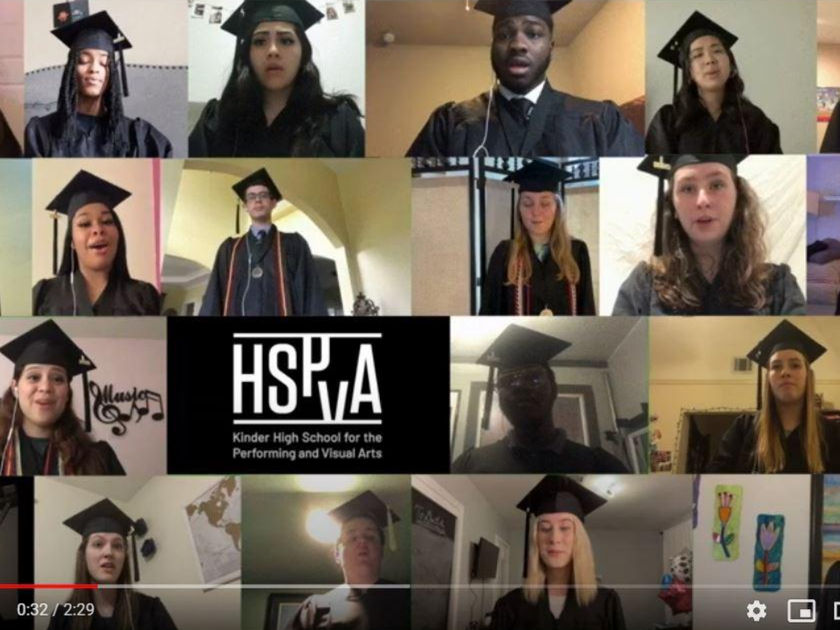Development • Theater • We Are Downtown
Resiliency in the Theater District: Kinder HSPVA
Organizations respond to pandemic with creative programming

Downtown’s Theater District has been the cultural heart of the city for decades. A place where people of all ages, races and denominations have gathered together to experience vibrant, profound and fantastical works of art. Following Hurricane Harvey in 2017, the damage to many of the venues and organizations was devastating, but they came back stronger than ever. Now, just a little more than two years later, COVID-19 has struck, forcing each organization to re-think the way shows are produced and executed. In today’s physically distanced way of life, the Theater District now looks to Houstonians for support, as their lights remain off and their stages dark. Despite all the challenges, the Theater District organizations continue to hold on to the mantra of “resilience”, something our city knows a thing or two about.
Kinder High School for Performing and Visual Arts launched into virtual learning when HISD closed schools in March. With well over 100 live performances each year, HSPVA was pleasantly surprised at the flexibility of their staff and students when determining how to proceed virtually. Seniors, who present a culmination performance or gallery show of everything they’ve done over the previous four years, had to find a way to share their work with the public.
“One of the benefits of it [virtual programming] was that more people ended up seeing those performances than ever would’ve happened if it was within one of our small, 150 person theaters,” said HSPVA’s Magnet Coordinator Jonathan Klein.
The best surprise was with visual artists. While the shows are typically held in a gallery over a period of time, hosting a show virtually allowed the students to talk about their work and describe what inspired them. “Visual artists also had to create new skills at the last minute, like creating video, which they might not have done throughout their four years of high school,” Klein said. Now the students have additional skills for their life after graduation.
Virtual programming was not on HSPVA’s radar prior to the pandemic, and it’s created new challenges that they continue to face looking forward. But their students are innovative, and Klein knows they will bring back a plethora of ideas for their teachers to try, making this a learning experience for faculty also.
“Everyone wants to get back to normal… how do we make sure that while this is a pain, and while people are still being negative about it, maybe this will elevate everything to a new level because of the opportunity,” said HSPVA Principal Scott Allen. The definition of normal isn’t how he’d describe HSPVA’s students and isn’t what Allen sees for the future.
Allen and Klein have been in discussions with Discovery Green and are looking at ways the students can socially distance in an outdoor area for live performances when it is safe to do so. They’re excited about how each department can use the park as a bigger stage for the kids.
HSPVA is now focused on enlisting public support for their students as parents have raised concerns about their emotional and social well-being since they’re not getting all of the in-person interaction they’re used to. Plus, performing on stage in front of a crowd is huge for their teenagers, who had so many performances canceled in the spring.
Klein said being present, being able to view the virtual content, is important to the kids. He encourages the public to follow HSPVA’s social accounts, watch their shows, and consume what they’re putting online, because that is what matters most to the students.
“Netflix, Hulu and Apple TV are all great ways to enjoy yourself when at home right now, but there’s nothing like enjoying students sharing their work and what they’re passionate about,” Klein said.
Mentioned in this Post
Discovery Green
1500 McKinney St